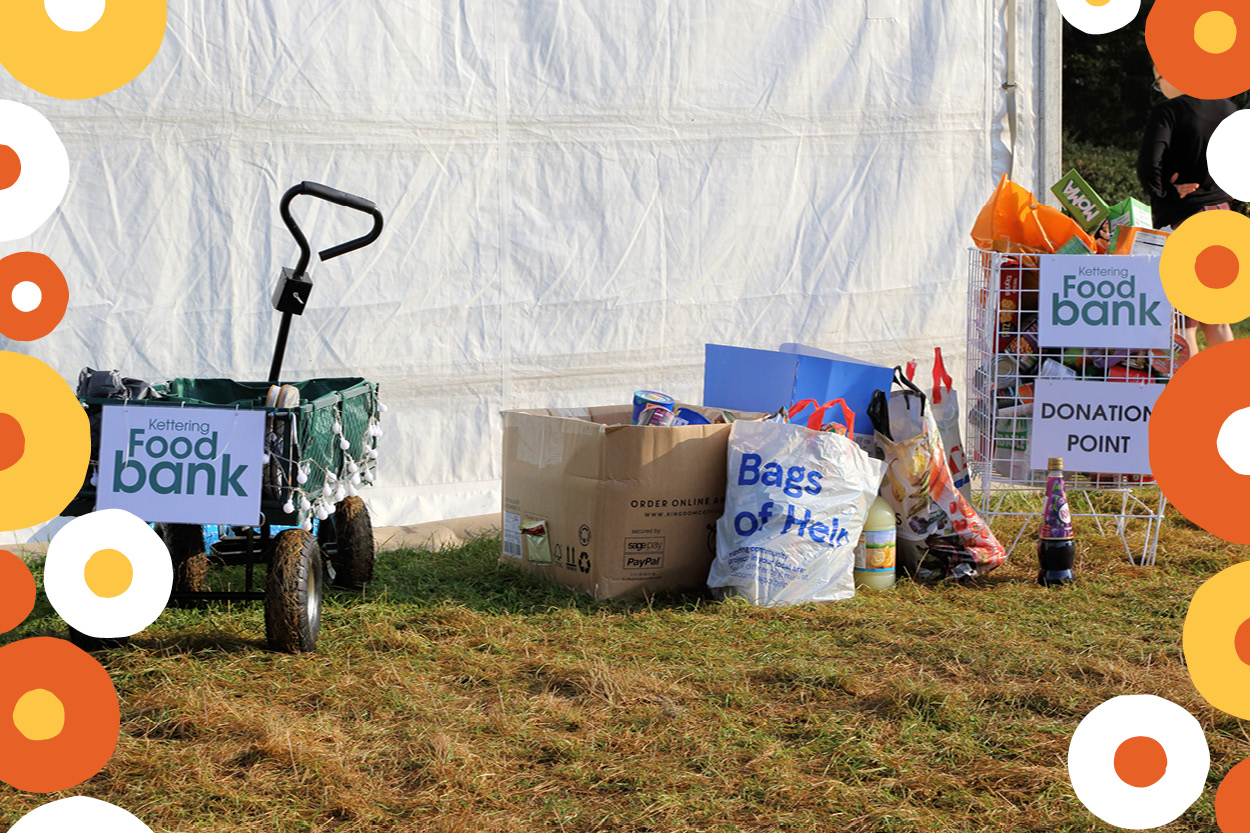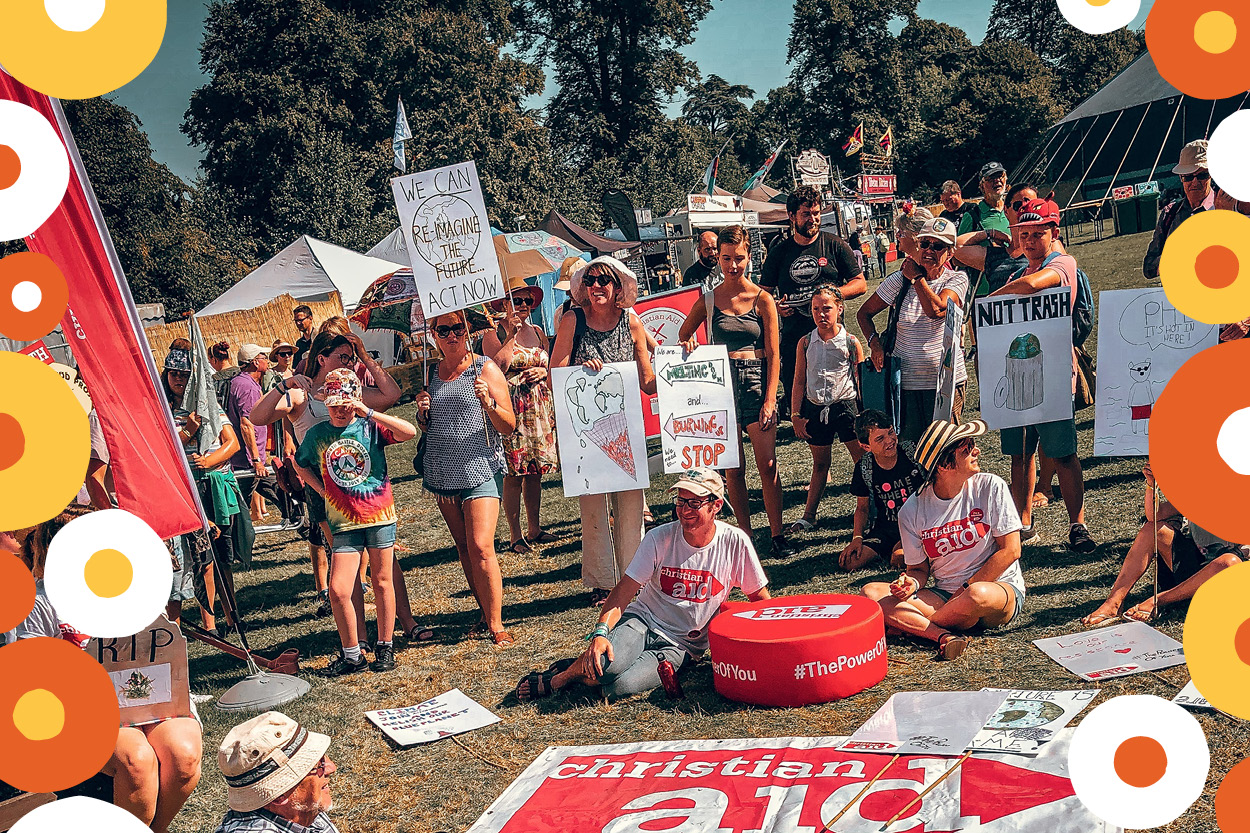Justice and activism have been fundamental threads of our DNA since the very beginning. We believe that by coming together, at Greenbelt and elsewhere, we can make a real difference. We think that one of the most important questions in the world is: ‘Now, what are you going to do about it?’ It’s a question we challenge ourselves with each year.
Our Comms Officer, Daisy, highlights some of the causes you can get behind at Greenbelt Festival 2022.
1) Climate activism
If, like us, you care about the future of this earth we call home, then there are lots of ways you can sharpen up your knowledge on the most pressing climate issues and leave the festival recharged and ready to get stuck in to being the change you know we need to see.
In fact, we’ve got an entire festival venue dedicated to facing up to the climate emergency – The Hot House (in partnership with the Pickwell Foundation). This year, you can expect to hear from the likes of Roger Hallam (mastermind behind Extinction Rebellion, Insulate Britain and Just Stop Oil) who will be asking if we can afford to stand by and watch as temperates continue to soar. Green Party MP Caroline Lucas will give you the low-down on what’s helped sustain her decades-long life in green politics. And Less Waste Laura will be taking to the stage in our new venue in the woods– The Rebel Rouser. Plus loads more.
And, if you find yourself needing space to reflect on the urgency of these calls, our big home (the earth) will be making its way to our little home (Boughton House) in the form of Luke Jerram’s Gaia – an awe-inducing replica of our beloved planet, as seen from space.
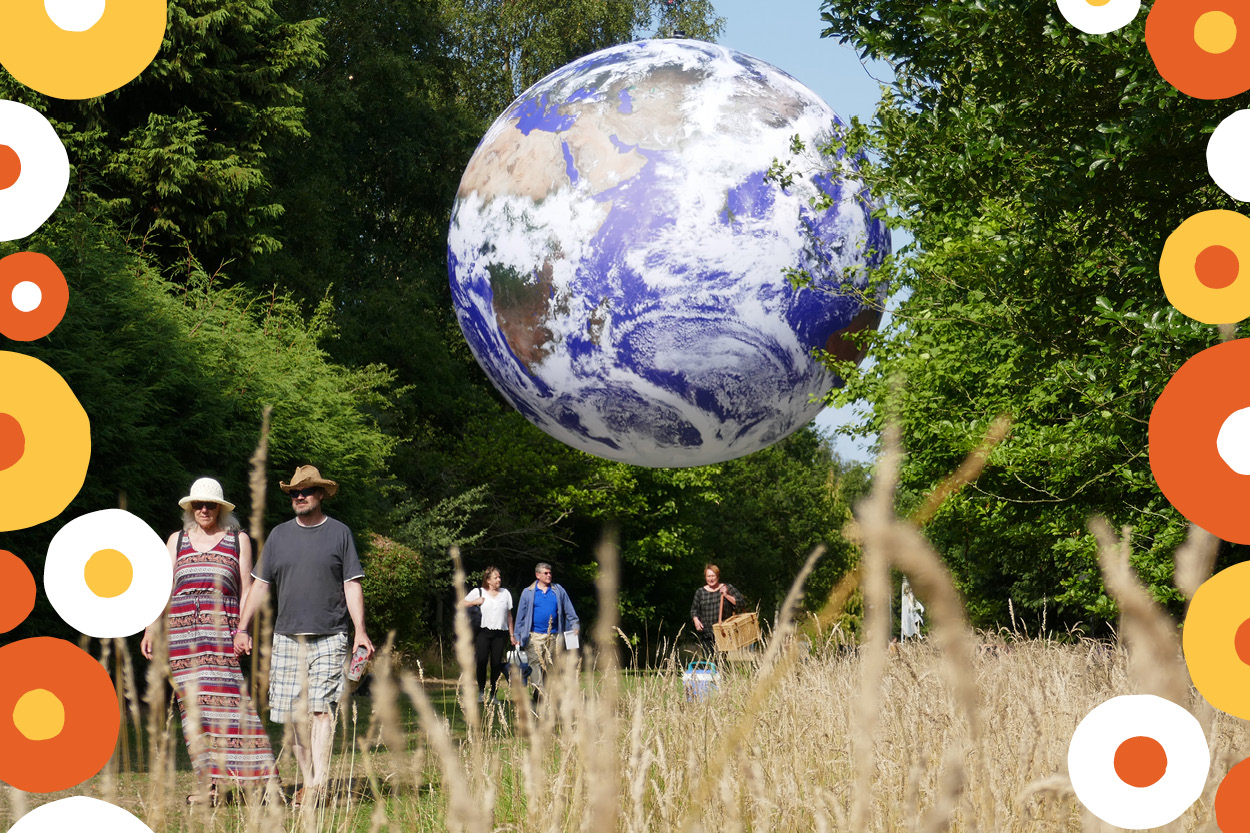
2) Craftivism
Craftivism (craft-activism) was first brought to our attention by the mighty but gentle Sarah Corbett. Think handmade thoughtful crafts that encourage positive change; a more gentle approach to activism that acknowledges that meekness is not weakness. This year, The URC youth team are taking up the craftivism mantle and hosting a series of crafting workshops in The Engine for our young people.
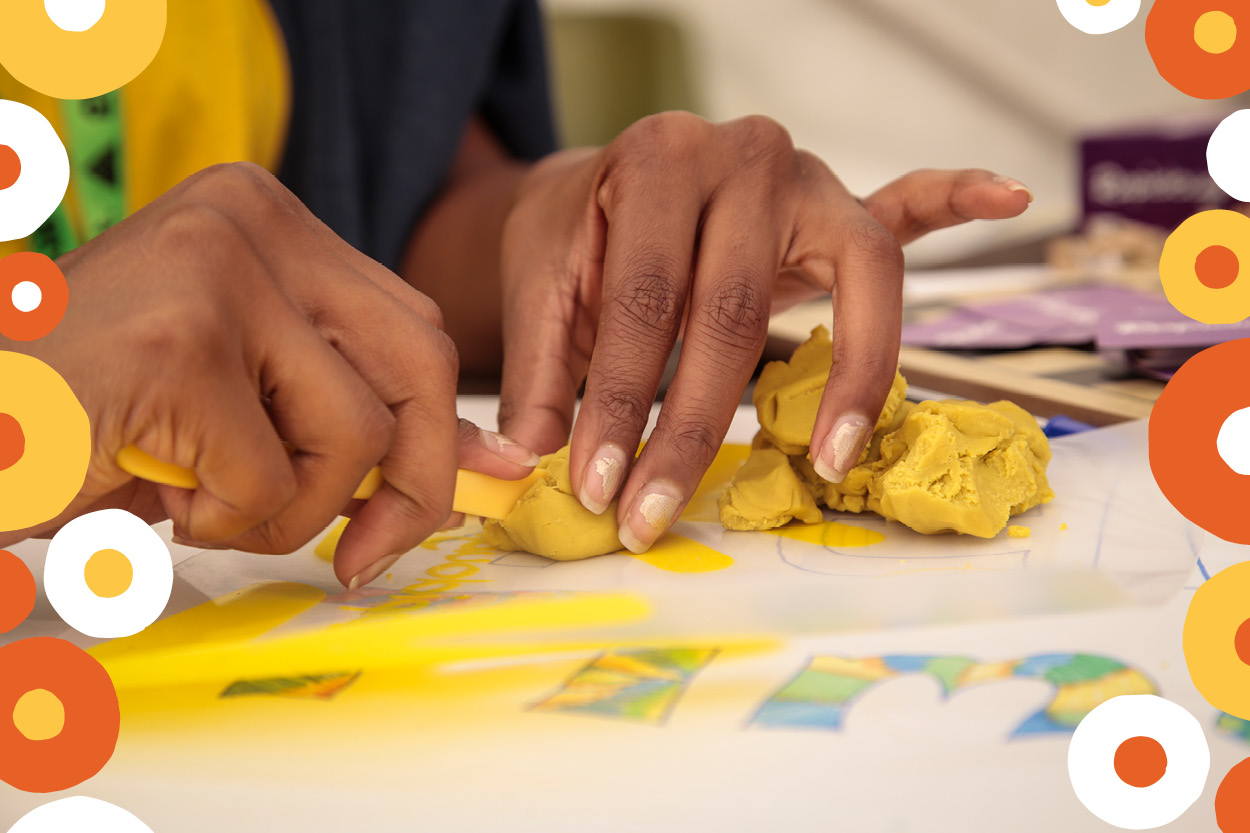
3) Race, science and colonialism
You’ll find a range of provocative talks across the weekend addressing racial justice and decolonialisation (including the wonderful Bonnie Greer with a talk entitled ‘My Taxi Ride with James Baldwin’ and Reni Eddo-Lodge with her challenging book, ‘Why I Am No Longer Talking To White People About Race’). But in addition to our continuing focus on racial justice, this year we’ve also got two experts coming to talk specifically about ‘race science’. Scientist Angela Saini will be talking about her much-lauded work on the murky history of the science and politics of race, in her book, ‘Superior’ (including how the far-right is attempting to repackage racism in the 21st century). And Subhadra Das examines the colonial and racist ideas of the most influential Victorian scientist, Francis Galton, the man who coined the term ‘eugenics’.
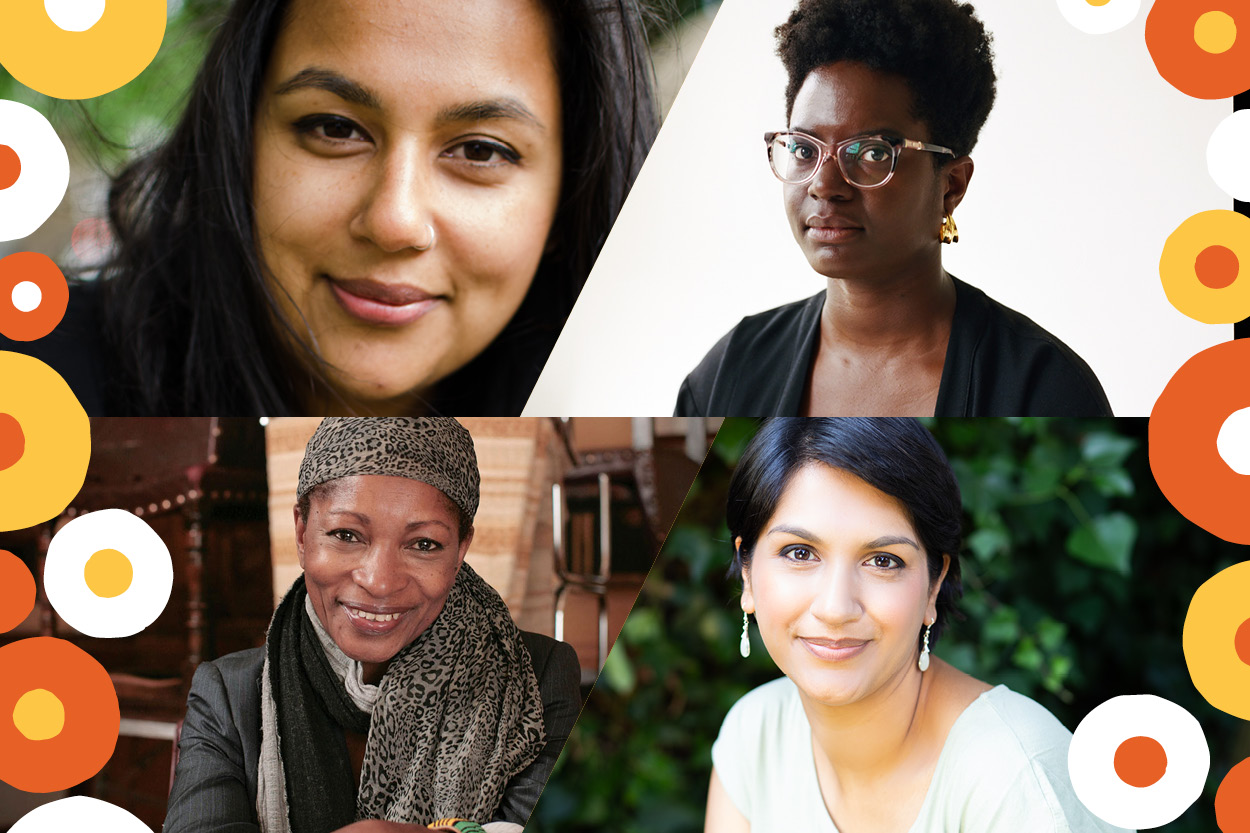
4) Migration
Join Gulwali Passarlay in the Treehouse at the festival to hear the incredible story of how, as a child refugee, he miraculously survived the harrowing year-long journey from Afghanistan to the UK on his own. And how, subsequently, he’s become a dedicated advocate for refugees and asylum seekers. Then hear Onjali Raúf – women’s and refugee human rights activist and a multi-award-winning children’s author – discussing her modern classic ‘The Boy At the Back of the Class’ and her new non-fiction guide for children, Hope on the Horizon.
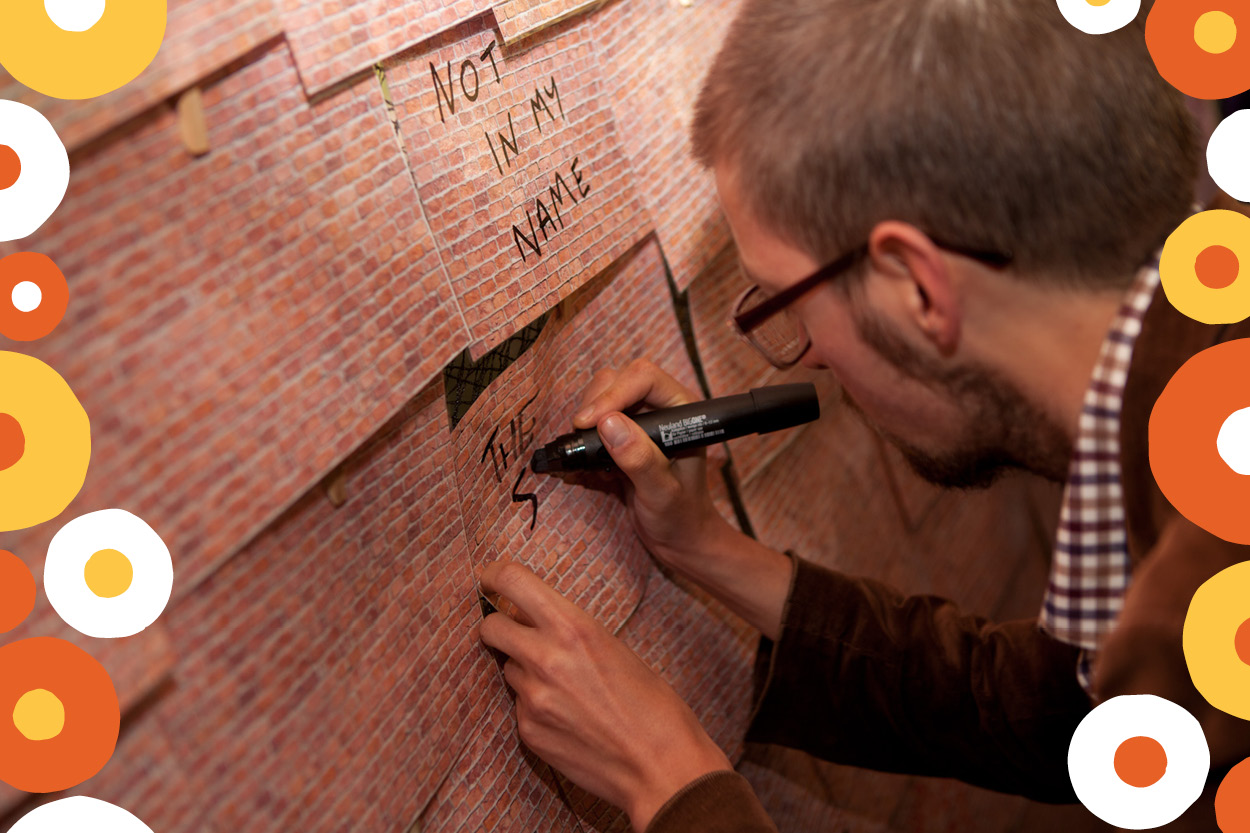
5) Palestine
Greenbelt doesn’t shy away from spotlighting the Palestinian cry for justice (you can read more about why here). And this year will be no different. We’re over the moon to be welcoming Palestinian singer-songwriter, Rasha Nahas, back to the fields. We first heard Rasha while at the Palestinian Music Expo in Ramallah a few years back and instantly fell in love with her and her music. And we have no doubt you will too.
A few years ago we were privileged to showcase the work of Palestinian painter Malak Mattar. Unfortunately, although her artwork made it to the festival, Malak wasn’t able to join us that year (because of last-minute issues with her visa). But we hope this is the year we get to correct that, and embrace Malak into the Greenbelt family. We’re saying our prayers.
Israeli anthropologist Jeff Halper – whose work on peace-building in Israel-Palestine earned him a Nobel Peace Prize nomination – will also be joining us. Imagining a world beyond the dead-in-the-water ‘Two-State Solution’, Jeff will be talking about what one shared civil society (between Israel and Palestine) might look like and what impacts the continuing demolition of Palestinian homes has on the Palestinian community.
We’ll also have our associate partners, Amos Trust, with us – staging an incredible visual arts exhibition of Gazan visual artists they are working with as part of their ground-breaking ‘On Location’ project (in the Tapestry Suite up at Boughton House itself). And, in launching this radical exhibition, we’re thrilled that Brian Eno will share about his commitment to the artistry and beautiful resistance of the Palestinian people.

6) Festival Friends
At Greenbelt, we’re privileged to work with one main partner, a range of associate partners, and a few sponsors and funders. We think of them all as our Festival Friends. And, at the festival, you get the chance to learn about the vital work they do. From our main partners Christian Aid, who strive for a world without poverty, to charities like Trussell Trust, who, as well as lobbying Government for policy change in favour of the poor, support a network of more than 1,200 food bank centres. We’re very proud of the work all our ‘Festival Friends’ do, and that we do together at the festival. You’ll find them all onsite (in fact, here’s a blog all about that) – so make sure to say ‘hi’ and ask them about what they do and see how you can support them.
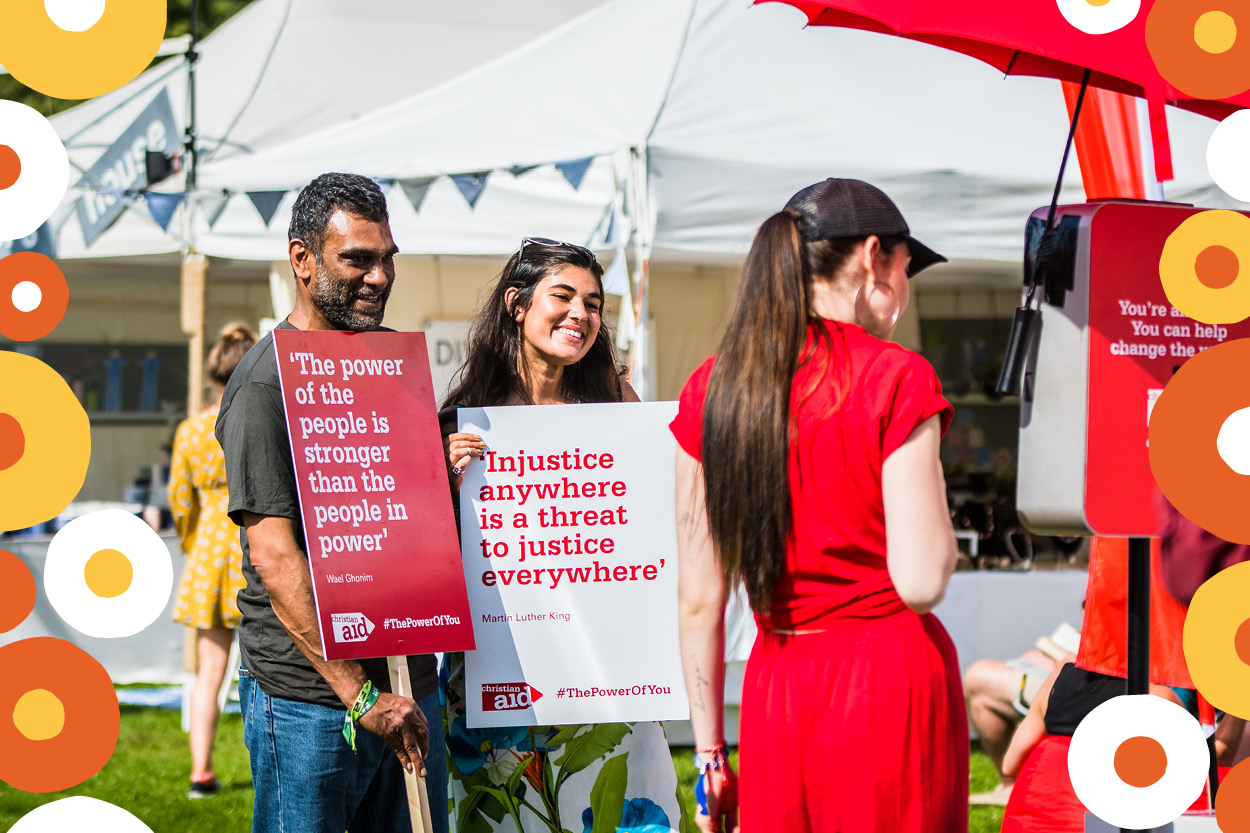
7) Foodbanks
At the end of the festival weekend, as you pack up your tents and get ready to head home, don’t forget to drop all your surplus non-perishable food at the Campsite Office and in the marked pens in the campsite. We’ll then donate all you leave on your behalf to a local Kettering Food Bank.
